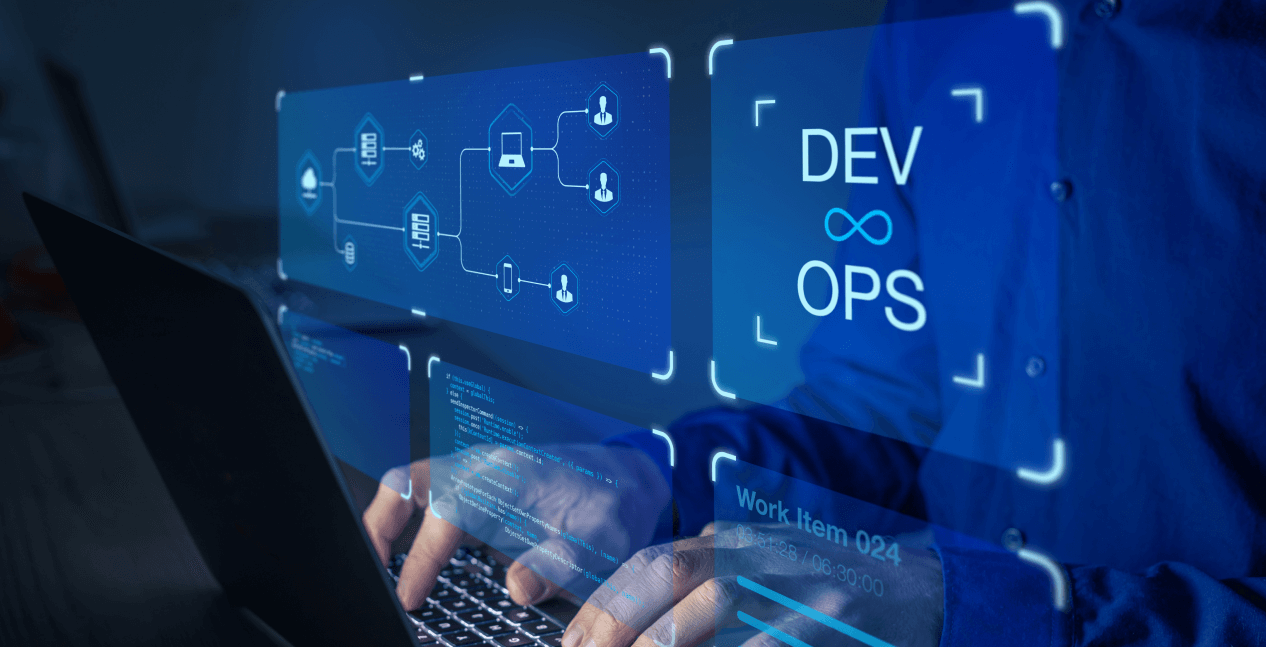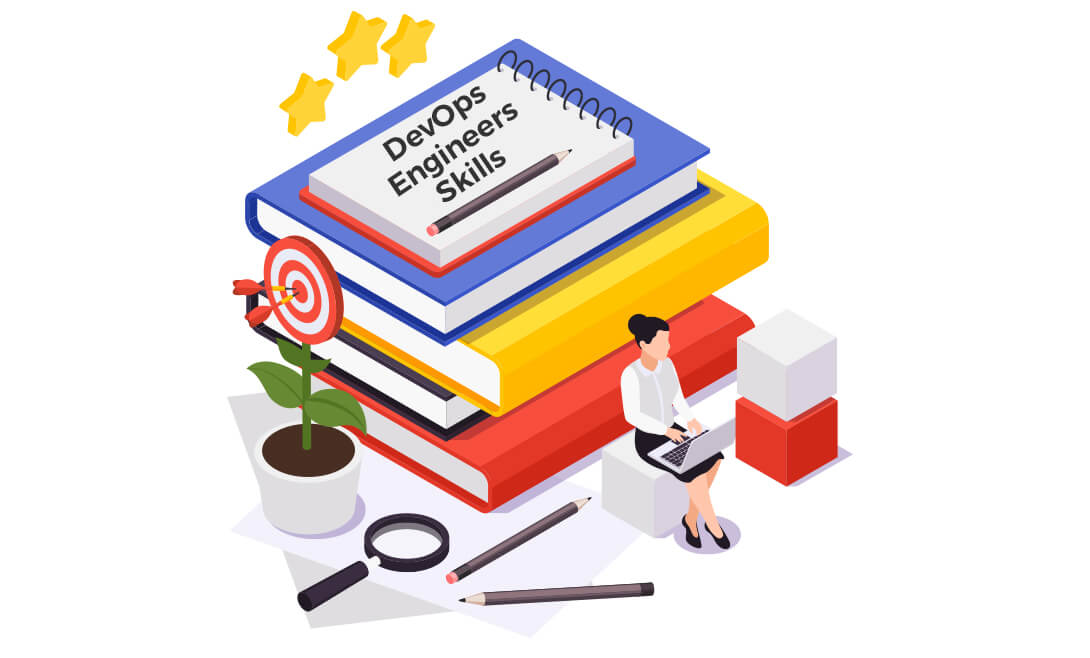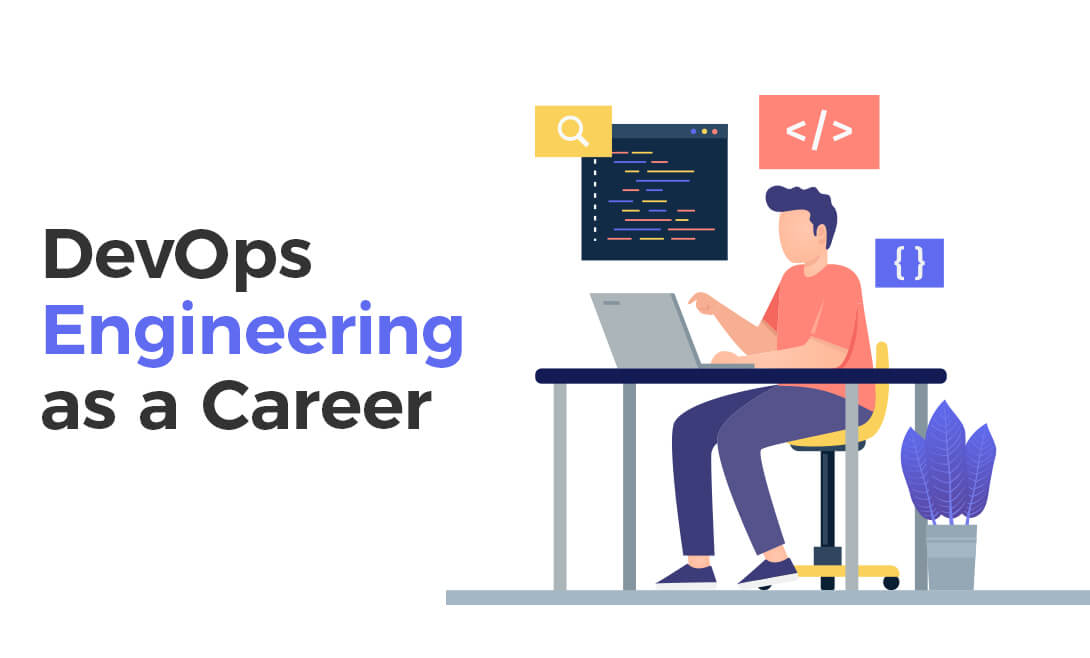DevOps has been the talk of the town over the decade. At its core DevOps has one critical goal; Enable more efficient, faster, and more secure software delivery to the clients. It does it by fusing “Development” and “Operation” teams. However, it is noticeable that DevOps is the same as Agile. Therefore, implementing DevOps in the business processes requires special skills and expertise. The specialists who work on DevOps for organizations are “DevOps engineers”.
Since we know the importance of DevOps, let’s try to understand who DevOps engineers are? What do they do? And most importantly, what DevOps skills the DevOps engineers must have to be efficient in their work?
Who are DevOps engineers?
DevOps engineers are DevOps specialists who bring unique combinations of experience and skills to the table. The engineers often combine system administration, operations, and software development in the full capabilities matrix.
DevOps engineers work closely with operations and development teams through a given application’s entire software development lifecycle. Automation is a crucial aspect of continuous integration and continuous delivery pipeline, deploying infrastructure. Additionally, monitoring critical production applications is among few tasks that a DevOps engineer undertakes regularly.
To perform these tasks, DevOps engineers require specific skills. Let’s try to figure out these DevOps engineer skills in detail.
Trending DevOps Skills
As mentioned earlier, DevOps has penetrated almost every sector of the business world. Aiming for a better quality of the products, organizations are paying more attention to the skills of DevOps engineers, and most importantly, they are paying good DevOps engineers salaries. So what are the skills that enable these DevOps engineers to stand among the masters of the technology?
1. Understanding the DevOps tools
Since several businesses have adopted DevOps at a highly rapid pace it has become a process in itself. The benefits it provides result from the DevOps tools that an organization implements. These tools ensure automation, transparency, and collaboration seamless for the engineers. Moreover, the DevOps tools ease the way to effectively share the information between stakeholders and other business teams for efficient product output to its end-users. Therefore, it is critical for DevOps engineers to understand the DevOps tools clearly.
2. Fundamental clarity of Linux
Linux is an Open-source OS that Linus Torvalds created in 1991. Since then, the growth and development of this OS have not looked back. The operating system is one of the most preferred OS today. It is highly secure, and most companies have their environment built over Linux-based systems. Today several DevOps tools in the configuration management domain such as Chef and Puppet have their architecture based on Linux master nodes. Hence, having sound knowledge of Linux fundamentals and scripting is essential for every DevOps engineer.
3. Continuous integration and Continuous delivery
Continuous integration and delivery have been the core of DevOps since the first day of its implementation. A better understanding of CI/CD approaches helps the DevOps engineers deliver high-quality and efficient products faster. In DevOps Community, wherever a developer finishes a functionality or a user story, they integrate the new code with the existing code of the product. This is what the developers call continuous integration. As a result, the DevOps engineer can save plenty of time and resources during the project’s integration phase.
On the other hand, continuous delivery is an extension of continuous integration. Here the newly integrated code is ready for deployment with minimal human intervention. In the waterfall model, the developers often have to release the new code for testing and various other processes, which consumes time and causes delays in product delivery. The DevOps engineers must be aware of the continuous integration and delivery concept and practices to ensure that the products are deployed and delivered on time.
4. Infrastructure as Code
Infrastructure as Code or IaC is the latest best practice of DevOps. This allows the DevOps engineers to provision and manage the infrastructure by abstracting to a high-level programming language. Therefore, all the software’s features and functionality can be applied to the application’s infrastructure like version control, tracking, monitoring, etc. With the emergence of IAC, days of manually configured infrastructure and infrastructure shell scripts are gone. A DevOps engineer knows Infrastructure as Code creates less error-prone, stable, robust, and consistent infrastructure.
5. Soft skills
DevOps puts more focus on culture rather than tools and practices. Therefore, soft skills are a must-have for DevOps engineers. The following crucial key value is trust among the team members. Trust is enabled by active and effective communication between team members, creating positive vibes.
6. Security skills
DevOps implies speed in software development. It is all about automation and quality. As the developers increase the speed, they often face vulnerabilities that get introduced into the code at a faster pace. DevOps engineers must produce a code that is protected from various attacks and malicious activities to keep the product secure. This often results in the DevSecOps approach, where security features are implemented from the beginning rather than incorporating them on end.
7. Collaboration
Collaboration is one of the essential values in DevOps. The DevOps engineers team that adopts this practice is a cross-functional team where members from business, operations, and development teams co-exist. Active collaboration is an essential skill required by the team members. There should be transparency between the team members. Everyone should know what is happening in the team and who is responsible for a particular task.
DevOps engineer: A feasible career?
One might be thinking about whether DevOps engineering is a viable career in the future. The notable answer to this question is “YES.” DevOps engineers are in demand due to the growing demand for the DevOps best practices in the software development industry. Not to forget the DevOps engineers’ salary, which is relatively high today considering the skills they have mastered. So, if someone is willing to pursue DevOps engineering as a career, that’s a good call for a sustainable future.
Conclusion
DevOps has become an integral part of software development today. It allows the businesses to develop quality products with fewer errors and bugs, ensuring the delivery is on time. Looking at the pace of implementation, DevOps engineers are in high demand. However, the quest to become a DevOps engineer is not that easy. One must learn and master specific skills that shall help one stand out from the crowd in the industry. Connect with us if you are willing to hire DevOps engineers for your business.
COMMENT
No Comments found.
DETAILED INDUSTRY GUIDES
Software Development - Step by step guide for 2021 and
beyond | OpenXcell
Learn everything about Software Development, its types, methodologies, process outsourcing with our complete guide to software development.
Headless CMS - The complete guide for 2021 | OpenXcell
Learn everything about Headless CMS along with CMS, its types, pros & cons as well as use cases, and real-life examples in a complete guide.
Mobile App Development - Step by step guide for 2021 and beyond | OpenXcell
Building your perfect app requires planning and effort. This guide is a compilation of best mobile app development resources across the web.
DevOps - A complete roadmap for software transformation | OpenXcell
What is DevOps? A combination of cultural philosophy, practices, and tools that integrate and automate between software development and the IT operations team.
GET QUOTE
INSIGHTS INTO TECH
The inception of ChatGPT in 2022 marked the wide-scale adoption of Artificial Intelligence in application development. In the field of creating mobile apps, AI-powered tools and frameworks have become indispensable…
Read more...
Introduction Most industries have turned to AI to stay ahead of the competition in the evolving tech landscape. The construction industry is no stranger to this trend. The advent of…
Read more...
Introduction Digital transformation needs no introduction; it is evolving as a norm in many industries. The paradigm transition it brings to the retail landscape is evident from the latest predictions.…
Read more...







